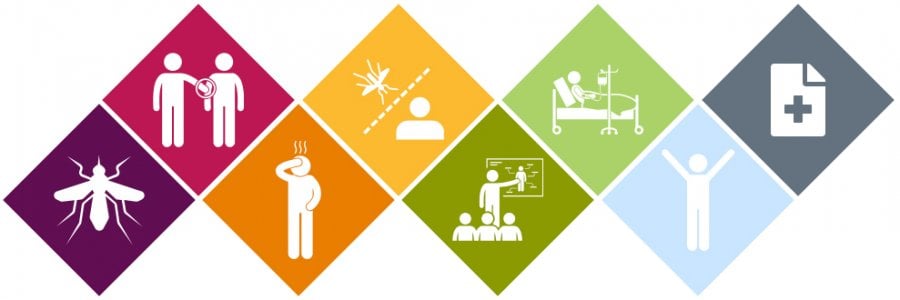Online to on the ground – helping health workers engage with local communities during epidemics
11 June 2018 London School of Hygiene & Tropical Medicine London School of Hygiene & Tropical Medicine https://lshtm.ac.uk/themes/custom/lshtm/images/lshtm-logo-black.png
Caption: ERAP logo. Credit: IDS/LSHTM
The Epidemic Response Anthropology Platform (ERAP2) will work with, and build, networks of anthropologists and other social scientists with regional or subject expertise, and connect them to policymakers, scientists and humanitarian response workers involved in responding to epidemics.
Bridging the gap between social scientists and response workers will help ensure communities’ voices are heard during outbreaks and that a co-ordinated social science and anthropological response is adopted. ERAP2 is supported by the UK Public Health Rapid Support Team which is jointly run by LSHTM and Public Health England and funded by the UK Government.
During the 2013 to 2016 Ebola epidemic in West Africa, the initial international response by donors and humanitarian agencies didn’t take into account of local customs and practices, and was met with mistrust and sometimes resistance as a result. This big gap in knowledge of the local culture and context was the catalyst for the award-winning work of the Ebola Response Anthropology Platform (ERAP).
With support from the UK Department for International Development, ERAP directly shaped strategies implemented in Sierra Leone to develop locally-appropriate Community Care Centres (as a complement to often-resisted Ebola Treatment Units) and to boost support for safe burials based on socio-cultural practices and local institutions.
ERAP2 builds on the success of the original platform by bringing a social science perspective and approach to a much broader set of diseases and potential outbreaks. It provides a range of crucial evidence in one easily accessible place, from journal articles and field reports to blog posts and peer reviewed articles, on themes including emergence and origins, transmission and spread, and local sources of care and advice.
Dr Hana Rohan, Assistant Professor in Social Science for the UK Public Health Rapid Support Team, and LSHTM project lead for the Epidemic Response Anthropology Platform, said: “During the West Africa Ebola outbreak there was an urgent need to quickly link emergency response workers with social scientists, to make sure communities were understood and listened to. Evidence from the original platform showed why Ebola could only be contained with the explicit involvement and active participation of local communities, what this might involve, and how it could be achieved.
“The DRC is currently experiencing an outbreak of Ebola with recent reports suggesting that last week two patients were removed from the Ebola Treatment Centre and taken to church. This could potentially have led to further virus transmission and temporarily halted control efforts due to security concerns. This demonstrates how important it is that outbreak response is managed in a locally appropriate way. This new platform aims to help make sure this happens more, and quicker.”
In a field dominated by medics, epidemiologists, virologists and other natural scientists, the original platform showed how valuable a social science perspective can be. During the Ebola crisis nearly four years ago, researchers saw early on that it was more than a medical emergency. The epidemic was also a lens through which much that had gone wrong with development to date could be seen.
Following in the footsteps of the original platform, ERAP2 will work closely with international partners responsible for global health and humanitarianism, in particular through the Social Science in Humanitarian Action Platform.
It is hoped the platform will become a focal point for social science evidence and advice, helping anthropologists, social scientists, and practitioners on the ground to mobilise and provide much needed insights into the social contexts of resistance and reticence, rumours, the development of vaccines and much more.
If you enjoyed this article and would like to build a career in global health, we offer a range of MSc programmes covering health and data, infectious and tropical diseases, population health, and public health and policy.
Available on campus or online, including flexible study that works around your work and home life, be part of a global community at the UK's no.1 public health university.